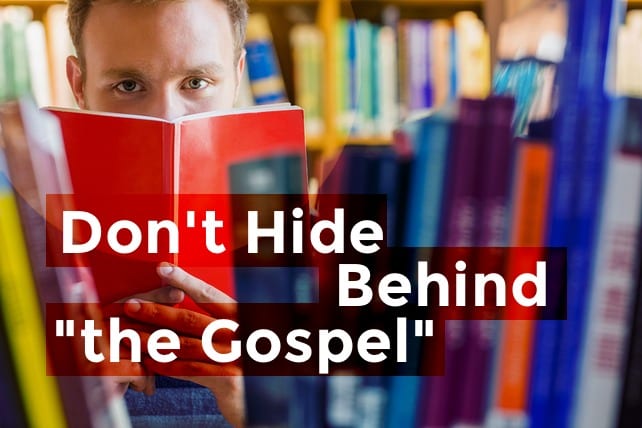I fear that many white Christians are hiding behind “the gospel” instead of figuring out how it actually applies to the racial conflicts all around us. Over and over I have heard or read that the racial tensions are a “gospel issue” or a “sin issue.” And that is true because, at one level, all sin and problems and pain are gospel issues because they all stem from the fall and its permeating, devastating effects on our world and our hearts. Thusly, all these issues need to be replaced, repaired, redeemed or renewed by Jesus. And the gospel is the message of Jesus doing just that.
So yes, the gospel does solve the problems of racial conflict in America. But not like most of us want to think. It is not a sermonic salve. It is not a matter of “sharing the gospel” with those one both sides. (Neither is it less than that.) To talk about how “the gospel” is the solution to these issues is a nearly useless statement when left by itself.
The gospel is only a solution when it drives us to do, only when what we believe about the free grace of God in Jesus makes us move. Only when we can make the connection between the gospel and the centuries of racial inequality in the United States, the lasting impact on our government and social structures, and the insidious and subtle effects on our own minds and hearts is it a solution. (If you do not acknowledge racial inequality historically, societally and governmentally please keep reading. The gospel applies to my view and yours; we both need it.)
I fear, though, that instead of the gospel, with all its deep grace for all mankind, being the spur in our mulish hearts it—that is, the word “gospel” itself—is a veil we throw over the ugliness of racial conflicts and call it a solution. Or maybe it is a curtain we draw tight to cozy-up our prayer closets and insulate us from the roiling, swirling hurt of 44 million black images of God in the U.S. Either way, we hide behind it. When we do, our own private prejudices go unconfronted and our fear and ignorance live on in comfortable ease.
Enough of that. If we believe the gospel, really believe it, we will be moved by it. We will be moved in all the ways the Bible says we ought—love, joy, peace, patience, kindness, goodness, faithfulness, gentleness and self-control. These are the fruit that the Holy Spirit brings about in the lives of those who believe, really believe, the gospel. And where are those in our cross-racial and cross-cultural interactions?












